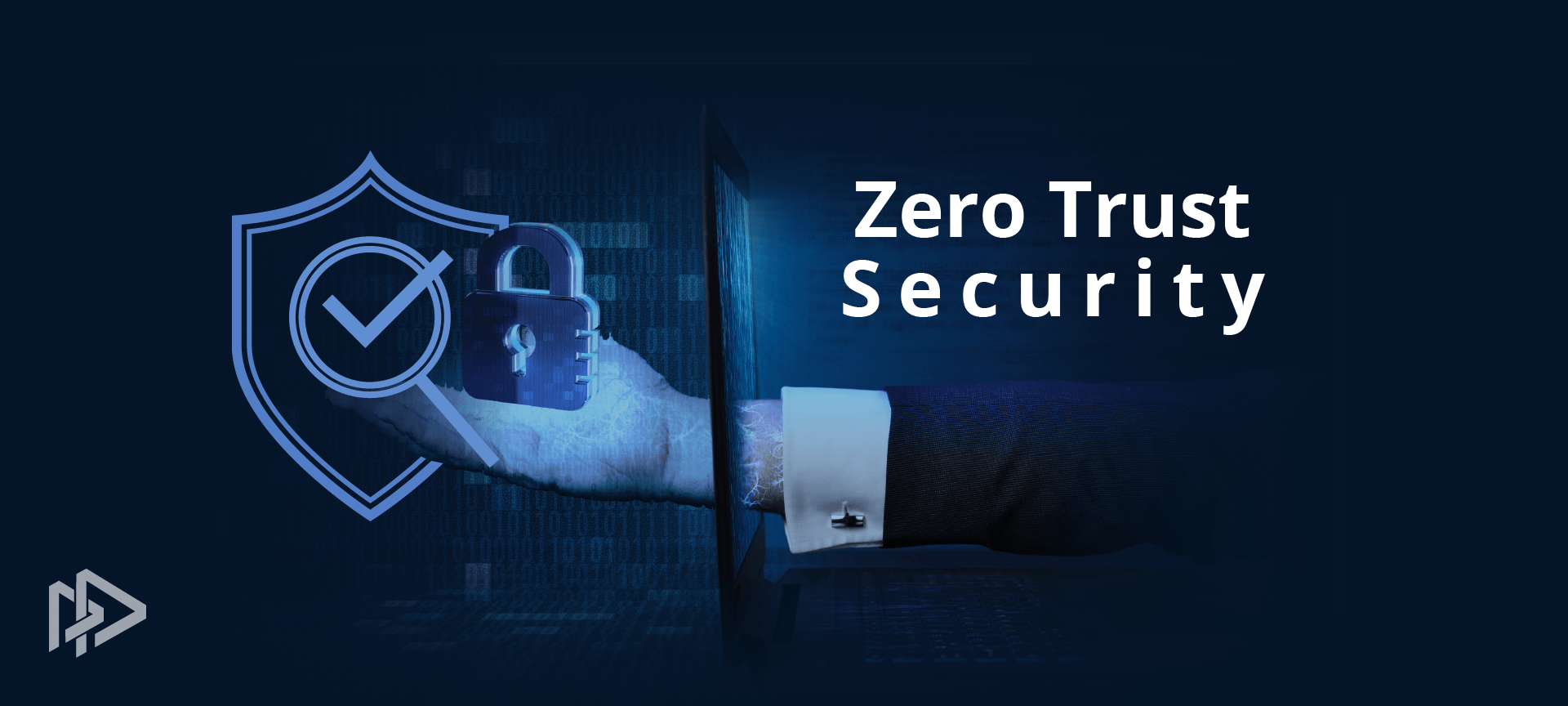Movaci is excited to announce that we are the first CertiProf® Authorized Training Partner in...
Secure your business from cyber-attacks with these 2 quick rules!
2 Rules
1. Never trust. 2. Always verify.
Have you heard of Zero Trust security yet? Now is the time to get familiar with the concept and take the appropriate steps to keep your company safe online. First and foremost, embrace these two rules – Never trust. Always verify. This is the foundational concept to how Zero Trust security works.
Why “Zero Trust” Security?
It used to be that a corporate firewall was enough to protect all devices connected via the company’s network, but with the rise of home offices and online work-related communications, it is no longer feasible to “trust” user and device access to the corporate network, even when you are absolutely sure you know who or what is attempting the access.
The reason is simple – malware and other forms of cyber-attacks can piggyback their way into your network via “trusted” access attempts by known users or devices. They may even mimic or hijack the trusted devices themselves.
What is “Zero Trust” Security?
Zero Trust security goes beyond what you might be used to by assuming that the company network is already breached. In such an environment, it becomes necessary to always verify identity and check for security anomalies with every access attempt. Zero Trust means that every access request has to be authenticated, authorized, and encrypted in order to connect with the rest of the corporate network.
This might seem impersonal at first or a step in the wrong direction for online corporate communications, but consider how much freedom 21st century tech has given us! We are able to access our personal and professional data from any device and from anywhere in the world. And more of that personal data is being stored in the Cloud rather than on a local storage system.
With that freedom comes the need for increased responsibility by individual users when managing their own devices and data. Additionally, there is a need to ensure the safety of both the users and the applications they access, now that the “umbrella effect” of a corporate network is no longer in play.
There is an obvious trade-off when going from a system where the corporation took full responsibility for all security measures to now having employees with BYO devices and individualized work schedules who need to be aware of their own security measures. However, the payoff is entirely worth it. Zero Trust security protects the company from not only cyber-attacks, it also protects against employees making “innocent mistakes” that can ultimately hurt the company by mishandling or sharing confidential data. It brings a whole new dimension to security management, something Movaci takes very seriously.
When considered in that light, Zero Trust security meets all the needs of the online business world at present without compromising the newfound freedom introduced through recent IT advancements. That is a win-win situation for businesses worldwide! Not only does this give you the time and opportunity to grow your business to higher levels of profitability, but it also means that the steps your employees take in the name of “zero trust” actually lead to more trusting collaboration overall due to the protection they have against both intentional attacks and innocent mistakes. In that way, Zero Trust security closely follows the same principles seen in secure hosting, something which most of us see and use regularly.
This comprehensive IT security model is absolutely necessary for businesses today. With the decentralization of “local” networks and Cloud technology becoming more and more integrated in daily work routines, it is vital to adopt Zero Trust security measures into your network security strategies and infrastructures.
3 Steps to Implementing Zero Trust Security.
Of course, no one expects you to make all necessary changes all at once. Instead, an incremental approach will work best for most businesses when making the transition in their security strategy. We recommend keeping the following in mind as you build toward a stronger security system for your company:
- Identify sensitive data – Prioritize which data is the most sensitive and who has access to it. Data Classification is important for determining what information requires user authentication to access, and how often. It also enables you to create user account baselines to help identify abnormal behaviors that are more likely to be malicious activity.
- Limit and control access – By limiting users and devices in what they can access, you are protecting your data on a need-to-know basis as well as keeping better control of the flow of information through your IT system. A principle to follow is “allow the least amount of access privilege as possible.” Your IT security depends on it.
- Upgrade threat detection – Zero Trust security requires continuous monitoring of your data systems in order to detect internal or external threats immediately when they occur. Remember, every access attempt is a potential threat, so authentication measures must be in place at all times.
1 Outcome: A security system that’s up to date and profitable in a rapidly changing landscape
Here are the bullet points:
- Zero Trust security focuses on verifying every access attempt every time to prevent cyber-attacks and employee mistakes while handling sensitive data.
- A “zero trust” path leads to a more robust security system that enables greater collaboration, productivity and profit in your team.
- Taking your first step on the Zero Trust path doesn’t need to be a giant leap, but working toward securing your digital assets in this way should be a top priority, as online business methods continue to grow and evolve.
Zero Trust security enables you to reach your end goals in this new era of online work environments; that is, it enables you to raise your profits and productivity levels without getting bogged down by security hassles. However, the longer you wait to move forward with this, the harder it will be to keep up and the more vulnerable you will become to cyber-attacks.
Conclusion: Take Action!
Deciding where to start when implementing Zero Trust security for your business can be overwhelming. If you prefer the DIY approach, you can make your first step towards Zero Trust Security in a click by securing your web hosting. If you prefer to focus entirely on growing your business and want a tailored solution for your Zero Trust security measures, consider talking to one of Movaci’s Network Engineers about our Managed Security Solutions.
Whatever you decide – don’t “do nothing” and fall prey to cyber-attacks. You’ve worked too hard to close your eyes to the very real danger and simply “hope for the best.”




